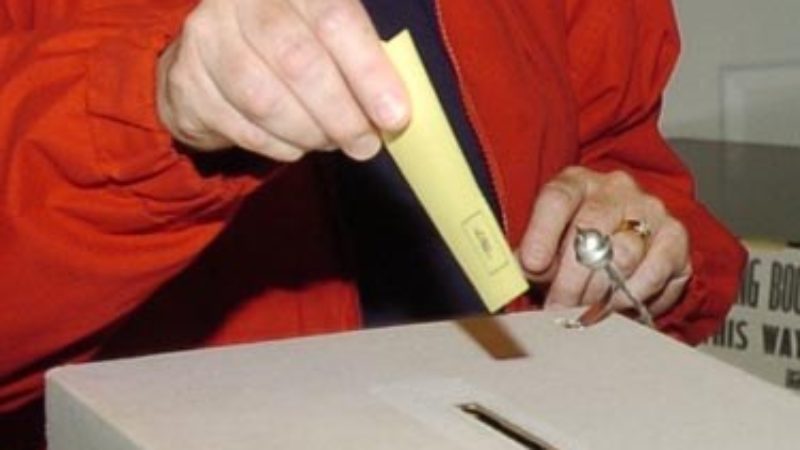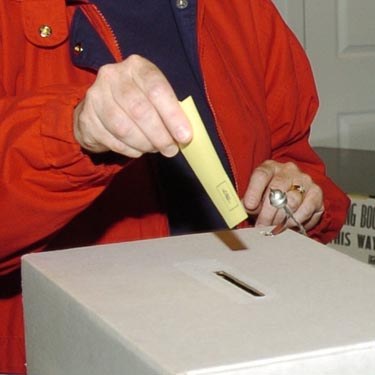

David Cameron is arguably in a worse position than Jesus was on the eve of the crucifixion. Christ was denied three times by Peter. But Dave went to Rochester and Strood on five occasions and still he got the thumbs down.
And that’s why the only story this weekend was the continued flatlining of the Tory opinion poll rating as the party struggles in vain to…
But no. That wasn’t the story, was it? Instead there has been Labour angst, worry and despair as a single tweeted photo and its aftermath managed to absorb most of the Westminster media’s attention for 48 hours. “Own goal” doesn’t really cover it. This was more like playing Russian roulette with a fully loaded pistol.
Grown-up and professional politicians have to recognise the circumstances they are operating in. The worst possible intentions may be ascribed to whatever it is you do, no matter how trivial or banal your words and deeds. No-one who knows Emily Thornberry thinks she is a snob. And yet the hasty snap of a flag-covered home was easily interpreted as a sneer. A rapid and unequivocal apology would probably have put an end to the fuss. But instead there was the odd declaration that the MP – who represents an inner-city London seat – had never seen anything like it, which really cannot have been true. In the chaos a decisive move was necessary, and Ed Miliband was right to insist on Thornberry’s resignation. The idea that a Labour MP was, as Lord Ashcroft has put it, “bemused by the kind of people her party was created to represent” , was too damaging a notion to be left unresolved.
Coverage of the Labour leader’s actions has now reached that interesting stage where whatever he does will be portrayed as a mistake. If he had not told Thornberry to go we would even now be waking up to “When will gutless Miliband get rid of this snob?” headlines, probably supported by a ticking clock of the hours that had passed since the original tweet. If Miliband solved the Ebola crisis he would be accused of cuddling up to celebs in a sordid PR stunt.
There will be non-stop anti-Miliband noise between now and the election from several newspapers, and it will be hard for impartial broadcasters not to be influenced by this. So far one fairly important constituency does not seem to be being unduly affected by it though: the voters. A year and a half of slightly better economic news has not raised the levels of Tory support in terms of voting intentions. And even though Labour support has fallen, current polls still put them slightly ahead with a share of the vote that would make it the largest party in six months’ time, unless a (still unlikely I think) “meltdown” in Scotland occurs.
Now, as Boris Johnson likes to say, in polling the “qual” drives the “quant”, in other words, the fact that the Tories lead on economic competence and leadership (in Dave vs Ed scores) means that inevitably the Tories will pull clearly ahead. But people have been saying that for 18 months. It hasn’t happened, yet.
In 1970 and 1992 polls put Labour ahead right up until election day, only for the Tories to win comfortably. Some Conservatives believe that even if the polls remain tight until May 7th, the negative Miliband scores will drag Labour’s vote down at the last minute. But pollsters also tell us that their methods and techniques have improved significantly since 1992, when out of date cohorts gave a misleading sense of the levels of Labour support. If polling is more accurate today – and I think it is – then current voting intentions still offer hope to Labour. Relentlessly hostile coverage has not yet succeeded in its aim.
It is just possible, isn’t it, that for all the noise on Twitter, all the hilarious and devastating ad hominem attacks, the clever sneering and jeering, all the carefully produced newspaper columns, splashes and exposés… it is just possible that hardly anyone is paying any attention to any of this at all. (Even The Sun, still a formidable newspaper of course, is selling – at 2 million copies a day – half as many as it did in 1992.) Maybe – I simply raise this as a possibility – only journalists, activists, politicians, PRs and pensioners actually bother reading this stuff carefully. Everybody else just carries on with their lives.
And this is where the real battle lies. Because, as Douglas Alexander pointed out in an important speech in Stirling on Friday, it is politics itself that is being tested and often found wanting by citizens today.
There is a noisy and at times dominant political mood in the air, which, as Alexander put it, “sees grievance as a commodity to be quarried for electoral profit. It sells cries of protest to people who feel voiceless. And it claims to be ‘authentic’ by amplifying voters grievances, too often at the expense of any pretence that they will actually be resolved. The question for progressive parties – and for Labour across the UK – is how should we respond? Simply amplifying anger is not enough – we need to offer answers.”
Alexander’s speech was too interesting and too carefully argued to get much coverage from the masters of “gotcha” journalism. But he described what really matters. The next election remains wide open, winnable by the party that rises to the challenge set out above. I don’t think the Conservatives are capable of doing so. Is Labour?




More from LabourList
‘Welfare reforms still mean a climate of fear. Changes are too little, too late’
Welfare bill: Which MPs are still voting against reforms?
‘The tap end is getting hotter – and Welsh Labour might get burned’